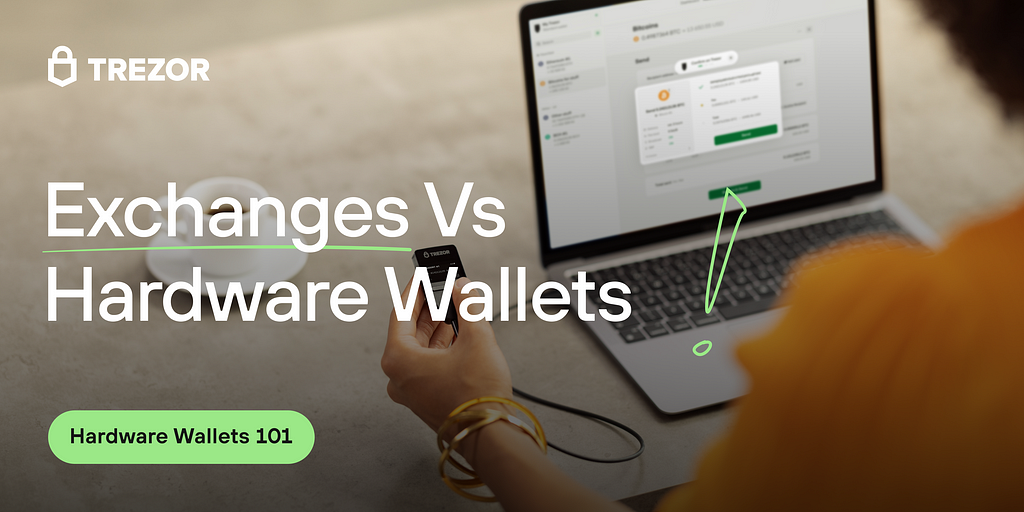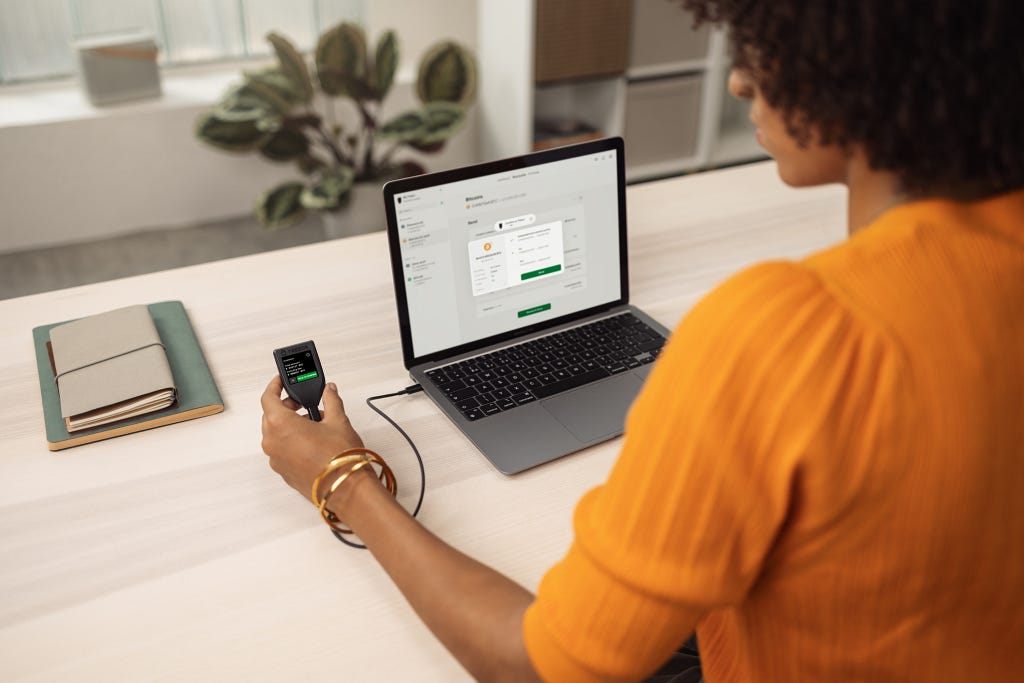Latest news about Bitcoin and all cryptocurrencies. Your daily crypto news habit.

Key takeaways
- Leaving crypto on exchanges puts your assets at risk.
- Self-custody by way of a hardware wallet offers an option to 100% own your assets.
- Hardware wallets securely generate and store your private key offline, providing a safeguard against online risks.
Heard of the Mt. Gox incident in 2014? That's one of the most infamous bitcoin exchange hacks, where users lost approximately 740,000 bitcoins. Or, the unexpected closure of the QuadrigaCX exchange, leading to a significant loss of customer assets. More recently, the FTX exchange’s bankruptcy left many users in financial limbo. All these examples underscore the risks associated with leaving your assets on exchanges.
Yet, there are still over 400 million people who take the risk of keeping their crypto on exchanges 😕.
In this post, we’ll compare the benefits of self-custody over that of holding your coins on an exchange.
Your Crypto? Then why not Your Custody
When you purchase crypto on an exchange, those coins are not automatically withdrawn to your personal wallet. The exchange allocates your crypto funds to your account on their internal ledger but remains the custodian of it.
Think of it like your money sitting in a bank account. In traditional banking systems, your money and assets are under the control of third parties, making you susceptible to potential security risks, privacy breaches, and even access restrictions.
To truly own your crypto, you need a wallet that grants you full ownership of your assets. Self-custody.
In come, hardware wallets
Hardware wallets like Trezor offer an ideal solution for self-custody. A Trezor hardware wallet functions as your key manager. These wallets securely generate and store your private key offline, use this private key to enable crypto transactions, and generate public keys for receiving crypto. Most importantly, your private key never leaves the device, meaning it’s not exposed to the internet and potential hackers.

Ok. But exchanges are convenient
Despite benefits like convenience and liquidity, storing coins on an exchange comes with risks,
- Exchange wallets are prime targets for hackers and cyber attacks. Billions of crypto assets have been lost in exchange breaches over the years. (Here’s a report by Cointelegraph that puts into perspective the funds lost to exchange hacks in the last decade)
- As custodians, exchanges could suspend withdrawals or withhold your assets in case of insolvency or investigation. You must trust them to remain solvent and grant you access.
- Exchanges routinely collect personal customer data like ID verification for regulatory purposes. This exposes you to privacy invasion if systems are compromised.
- Exchange outages can deny you access to your funds when you need them most, especially during volatile price swings.
Negate these risks with hardware wallets
Self-custody through hardware wallets extends,
- Security and Control: You have direct control over your crypto, reducing risks related to hacking or third-party failures.
- Privacy: Transacting under self-custody allows you to maintain privacy as you don’t need to disclose personal information to a third party.
- Freedom: Enjoy individual financial sovereignty, a core tenet of decentralization.
So, who wins? 🥊
There's just one winner in this competition — Hardware Wallets. Crypto exchanges provide convenience but come with significant centralized risks. To exercise true ownership of your coins, you must withdraw them to a hardware wallet where you control the private keys.
A hardware wallet Trezor functions as your key manager. These wallets securely generate and store your private key offline, providing a safeguard against hacks or third-party failures.
Don’t be lulled into a false sense of security by keeping coins on an exchange. Take control of your crypto now! Seen our latest Trezor model?
Exchanges Vs. Hardware Wallets: Risks of leaving your coins on an exchange was originally published in Trezor Blog on Medium, where people are continuing the conversation by highlighting and responding to this story.
Disclaimer
The views and opinions expressed in this article are solely those of the authors and do not reflect the views of Bitcoin Insider. Every investment and trading move involves risk - this is especially true for cryptocurrencies given their volatility. We strongly advise our readers to conduct their own research when making a decision.